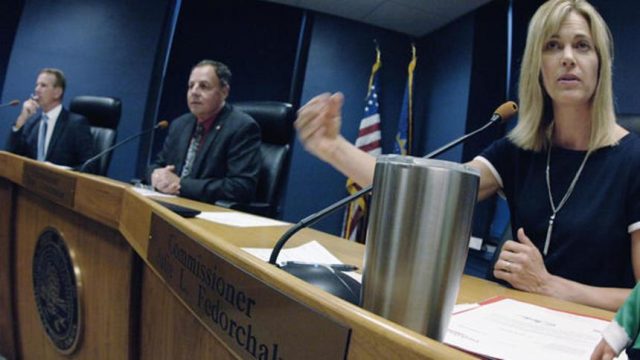Give Commissioner Fedorchak Credit for Sticking With North Dakota’s Rail Inspection Program

During the 2015 legislative session Public Service Commissioner Julie Fedorchak fought a pitched battle, mostly behind-the-scenes, against cantankerous lawmakers who were skeptical of her desire to create a state-level rail inspection program.
With 20/20 hindsight, we can now see that Fedorchak had the right of this issue. The Legislature, grudgingly, authorized a temporary program with a limited budget. It has most recently be renewed by the 2019 legislative session to run until 2021, and it may even be made permanent after that.
The program has been a success, as the Associated Press details today. “Since the program’s inception in 2015, Fedorchak says state inspectors have found about 6,000 ‘defects’ on tracks and railroad rolling stock, resulting in more than 90 violations,” James MacPherson reports.
It was implemented amid the “bomb train” hysteria of several years back. Some high profile and highly explosive derailments of trains carrying North Dakota oil – including one that caused a mushroom cloud near Casselton – made national headlines and gave anti-oil zealots another talking point in their campaign to inhibit production.
The political fallout from that time continues. Washington Governor Jay Inslee, who also happens to be running for the Democratic nomination for U.S. President in 2020, recently signed legislation which would effectively ban North Dakota oil from being shipped by rail to refineries in that state.
North Dakota is going to sue Washington over this move and while the state has a very strong case based on the U.S. Constitution – Congress, not the State of Washington, regulates interstate commerce – you can bet that North Dakota’s efforts on rail safety in our state will be part of the argument showing how our state government has handled this issue responsibly.
Our state rail inspectors aren’t working in Washington, but they are proof that our state has been responsive to the issue. And that there are better ways to address the safety of oil-by-rail shipments than a de facto regulatory ban on oil-by-rail shipments.
The Casselton derailment, among other factors, was the impetus for Fedorchak’s push for a state rail inspection program as she told me in a 2014 interview.
Kudos to Fedorchak for having the right sort of vision, which she fought to implement over the objections of members of her own party.
I’m glad that the default position of most of our state leaders is to be skeptical of new government programs, but that doesn’t mean all regulation and programs are bad.
Fedorchak was right and her detractors were wrong.




